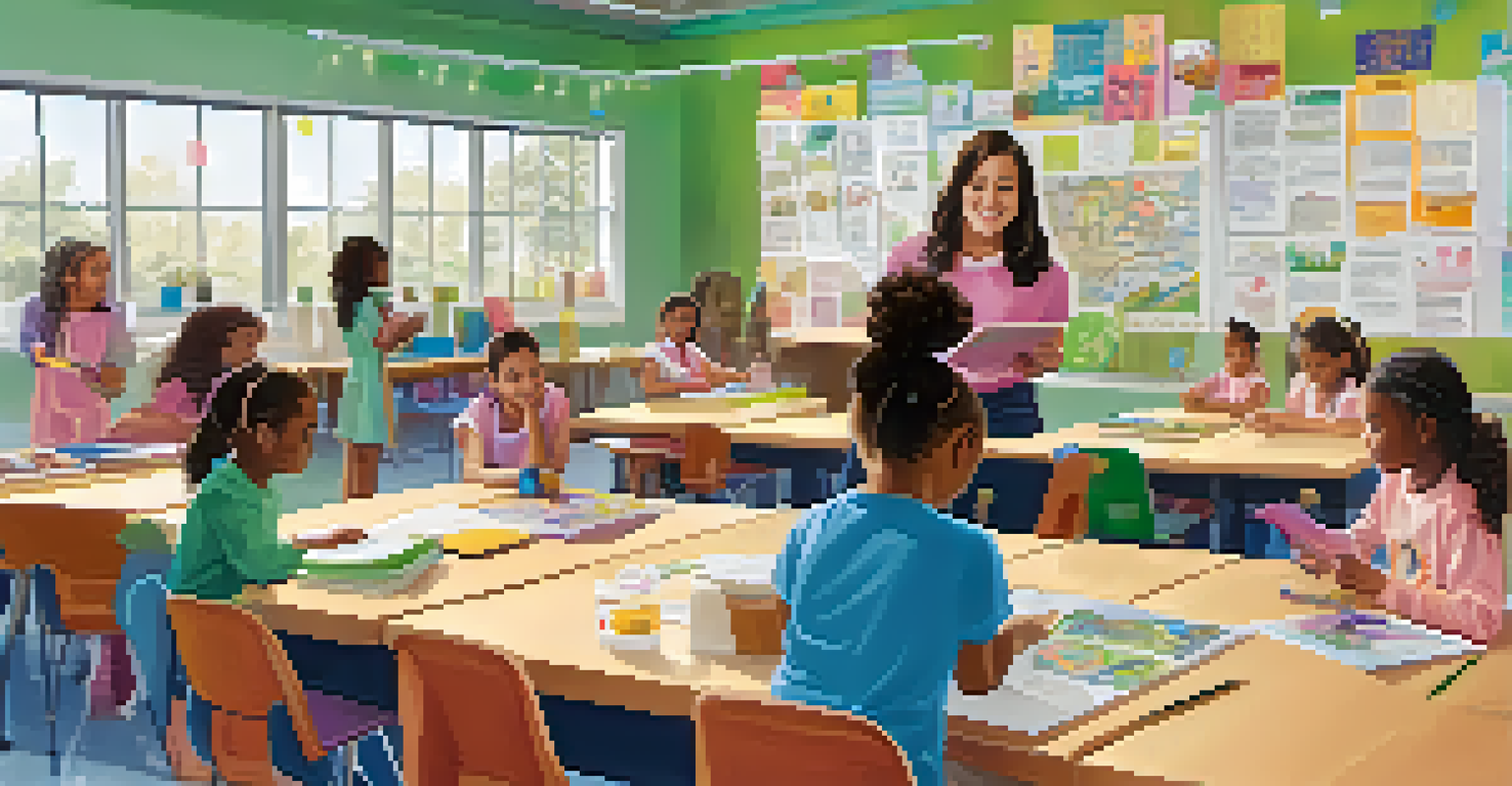Historical Overview of Gender Issues in Georgia

The Early Foundations of Gender Roles in Georgia
Historically, gender roles in Georgia were heavily influenced by cultural norms and agricultural lifestyles. Women often managed household responsibilities while men engaged in farming and labor. This division of roles created a foundation for societal expectations that persisted for generations.
Gender equality is more than a goal in itself. It is a precondition for meeting the challenge of reducing poverty, promoting sustainable development and building good governance.
In the early 20th century, the emergence of the women's suffrage movement began to challenge these traditional roles. Women sought greater participation in politics and social issues, highlighting the need for change. This period marked the beginning of a slow transformation in how gender was perceived in Georgian society.
Despite these efforts, many women continued to face significant barriers to equality. Social, economic, and political constraints limited their opportunities, reinforcing the patriarchal structure that defined much of Georgia's history.
The Impact of Soviet Rule on Gender Dynamics
The Soviet era brought about significant changes in gender roles throughout Georgia. Women were encouraged to enter the workforce, with state policies promoting gender equality in employment. This shift provided new opportunities for women, but it also imposed state-defined roles that often conflicted with traditional values.

As women participated more in public life, they also faced the challenge of balancing work and family responsibilities. The dual burden of professional obligations and domestic duties created a complex dynamic that many Georgian women had to navigate. This period also saw an increase in women's education, which empowered them to seek further advancements.
Historical Gender Roles in Georgia
Gender roles in Georgia have been shaped by cultural norms and agricultural lifestyles, leading to persistent societal expectations.
However, the Soviet regime's focus on productivity often sidelined issues of personal choice and autonomy. While women gained visibility in the workforce, their rights in terms of personal life and politics remained limited, leading to a complicated legacy of gender equality.
Post-Independence Challenges for Gender Equality
Following Georgia's independence from the Soviet Union in 1991, the landscape for gender issues became increasingly complex. The newfound freedom allowed for discussions about women's rights and equality, but economic instability hindered progress. Many women were disproportionately affected by the hardships of the transition, facing job losses and rising poverty rates.
The most common way people give up their power is by thinking they don’t have any.
During this time, grassroots organizations began to emerge, advocating for women's rights and gender equality. These groups played a crucial role in raising awareness about domestic violence, reproductive rights, and economic empowerment. Their efforts laid the groundwork for future legislative changes aimed at improving women's status in society.
Despite these advancements, traditional gender roles remained deeply entrenched in some areas of Georgian society. The struggle for gender equality continued, as women sought to balance cultural expectations with their aspirations for independence and empowerment.
Modern Movements and the Fight for Gender Rights
In recent years, Georgia has witnessed a resurgence of activism focused on gender rights. Women’s marches and campaigns have gained momentum, addressing issues such as domestic violence, sexual harassment, and equal pay. These movements have brought attention to the systemic inequalities that persist in various sectors.
Social media has played a pivotal role in amplifying voices advocating for gender equality. Platforms like Facebook and Instagram have become spaces for sharing stories and experiences, fostering a sense of community among activists. This digital landscape has empowered many Georgian women to speak out and demand change.
Impact of Soviet Rule on Women
The Soviet era provided new opportunities for women but also imposed state-defined roles that conflicted with traditional values.
However, challenges remain, as societal attitudes can still be resistant to change. The push for gender equality continues to face backlash, highlighting the importance of ongoing education and advocacy to shift perceptions and promote understanding.
Legislative Advances and Remaining Gaps
The Georgian government has made strides in enacting laws aimed at promoting gender equality. Legislation addressing domestic violence, workplace discrimination, and reproductive rights has been introduced, reflecting a commitment to improving women's rights. These legal frameworks are crucial for establishing protections and support for women.
Despite these advancements, implementation and enforcement often lag behind. Many women still encounter difficulties accessing justice or support services due to social stigma and systemic barriers. The gap between legislation and reality remains a significant hurdle in the quest for true gender equality.
Moreover, while laws can provide a framework for change, cultural attitudes toward gender roles continue to influence societal behavior. Bridging the gap between legal protections and cultural acceptance is essential for progress in gender equality.
The Role of Education in Advancing Gender Equality
Education is a powerful tool in promoting gender equality in Georgia. By providing equal access to education for girls and boys, society can empower future generations to challenge traditional gender norms. Educational initiatives focused on gender sensitivity can foster a culture of respect and equality from a young age.
In recent years, various programs have been implemented to encourage girls to pursue STEM fields and leadership roles. These initiatives aim to break down stereotypes and inspire confidence in young women, paving the way for greater participation in diverse sectors. Education not only equips individuals with skills but also reshapes societal perceptions of gender capabilities.
Ongoing Challenges for Gender Equality
Despite legislative advances, cultural attitudes and systemic barriers continue to hinder true gender equality in Georgia.
However, ongoing efforts are necessary to ensure that educational institutions are free from gender bias. Addressing issues such as bullying, discrimination, and unequal treatment within schools is crucial for creating an inclusive environment where all students can thrive.
The Future of Gender Issues in Georgia
Looking ahead, the future of gender issues in Georgia hinges on continued activism and advocacy. The voices of women and allies must remain strong in promoting equality and challenging oppressive structures. Building coalitions and fostering solidarity among various groups can amplify efforts toward gender justice.
As societal attitudes evolve, there is potential for significant progress in gender equality. Engaging men as allies in this movement is essential, as achieving equality requires a collective effort from all members of society. Encouraging open dialogue about gender issues can help foster understanding and collaboration.

Ultimately, the path forward involves a commitment to education, legislative change, and cultural transformation. With persistent efforts and a vision for a more equitable society, Georgia can continue to make strides toward achieving true gender equality.